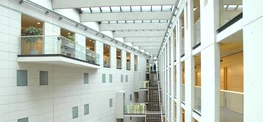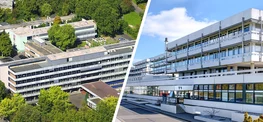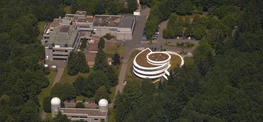The lab of Meritxell Huch at the Max Planck Institute of Molecular Cell Biology and Genetics seeks Postdoctoral Researchers (m/f/d) in molecular and cell biology.
Job description
The lab of Meritxell Huch is seeking talented, curiosity-driven postdoctoral scientists to pursue projects investigating molecular and cellular mechanisms of liver and pancreas regeneration and disease using both newly developed organoid and animal models. Epigenetic background, genetic engineering and lipid metabolism backgrounds are desirable. Bioinformatic knowledge is also desirable.
The long-term goal of the Huch lab is to gain mechanistic understanding of the principles that govern proliferation and differentiation of adult organs and tissues using both organoid and animal models with the final objective of understanding organogenesis. Dr Huch pioneered the development of organoid models for non-intestinal tissues with seminal papers on stomach (Cell Stem Cell 2010), liver (Nature 2013, Cell 2015, Nature Protoc 2016, Nature Medicine 2017, Cell stem cell 2021) and pancreas (EMBO J 2013, BMC development 2020) organoids.
Research group members exploit the liver as a model of extensive regenerative capacity and the pancreas, which exhibits very little regeneration potential, to unveil the biological processes that control adult tissue homeostasis and repair and their deregulation in disease. Their experimental strategy involves the combined use of: (1) animal models and (2) in vitro mouse and human organoid models that recapitulate key aspects of mouse and human liver development, proliferation and regeneration in vivo and in culture, in a controlled environment. The team is highly interdisciplinary, international and collaborative; English is the working language of the Huch lab and the institute.
Required qualifications
- A doctoral degree in life science or similar
- documented experience in bioinformatics or molecular and cellular biology
- at least one first-author publication in press or in a pre-print server
- Good command of the English language,
- Excellent communication and data presentation skills
Our offer
The full-time position is for an initial period of 2 years with the possibility of extension. Salary and social benefits will be in accordance with the regulations of the German TVöD Bund (salary agreement for public service employees). The MPI-CBG offers a JobTicket in collaboration with the VVO, as well as a broad network for career development and training opportunities through the Max Planck Society.
Your application
Interested candidates should submit a single PDF file comprising:
- a letter explaining the motivation to join our research group, your research interest and a short description of current research projects demonstrating relevant experience
- a CV including your list of potential fellowships, grants, awards/ honors, conference participations and publications
- Grade transcripts of academic education and qualifications
Please send all documents by November 15 2022 via our online application system stating Code 2022-PostDoc-MACB-1110.
Applications will be assessed on a rolling basis. Start dates would be possible as of February 15 2023. After a first pre-selection of your application, please be prepared to furnish three recommendation letters to be sent in short notice as PDF.
The Max Planck Society strives for gender and diversity equality. We welcome applications from all backgrounds.
For further details on the position offered, please contact Meritxell Huch huch@mpi-cbg.de.
Follow us on twitter @MeriHuchlab





